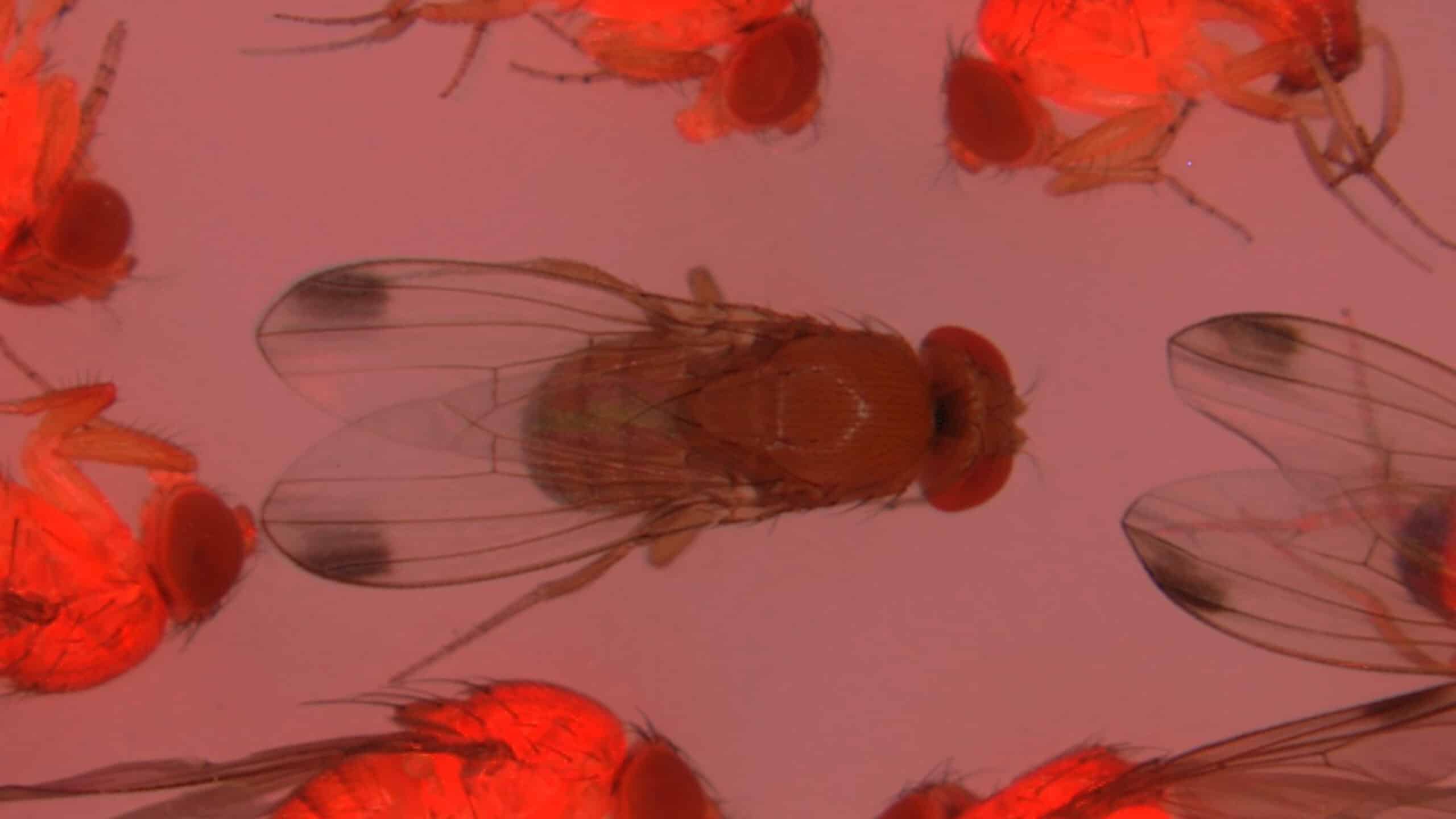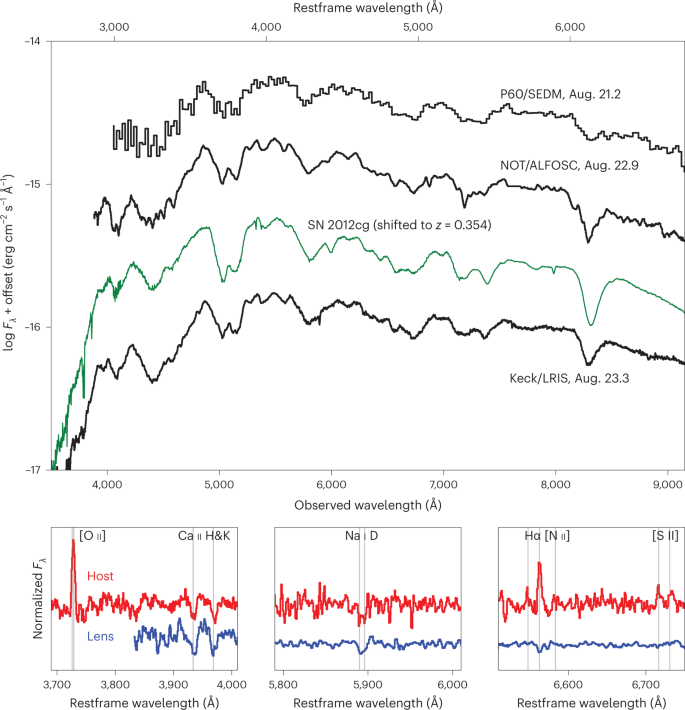2023-06-12 ノースカロライナ州立大学(NCState)
 NC State researchers used a florescent protein to mark the genetic changes to spotted-wing Drosophila.
NC State researchers used a florescent protein to mark the genetic changes to spotted-wing Drosophila.
◆研究チームは、D. suzukiiの性発生に重要な役割を果たす「doublesex」という特定の遺伝子を標的とする双方向CRISPR遺伝子ドライブシステムを開発した。このシステムにより、多数の実験で雌バエが卵を産むことができない不妊状態になったと報告されている。
<関連情報>
- https://news.ncsu.edu/2023/06/crispr-gene-drive-could-suppress-ag-pests/
- https://www.pnas.org/doi/10.1073/pnas.2301525120
- https://onlinelibrary.wiley.com/doi/abs/10.1002/ps.6530
世界的な果樹害虫Drosophila suzukiiの個体数抑制を目的としたCRISPR/Cas9を用いたdoublesexを標的としたスプリットホーミング遺伝子ドライブの開発 CRISPR/Cas9-based split homing gene drive targeting doublesex for population suppression of the global fruit pest Drosophila suzukii
Amarish K. Yadav , Cole Butler, Akihiko Yamamoto, Anandrao A. Patil , Alun L. Lloyd , and Maxwell J. Scott
Proceedings of the National Academy of Sciences Published:June 12, 2023
DOI:https://doi.org/10.1073/pnas.2301525120
Significance
Spotted wing drosophila (Drosophila suzukii) is a vinegar fly with a worldwide distribution that does significant economic damage to soft-skinned fruits. We made and evaluated split CRISPR homing gene drives that target the conserved female-specific exon of the doublesex gene, which is essential for sexual development in Drosophila. Our results suggest that homing gene drives could provide a cost-effective approach for suppression of D. suzukii populations.
Abstract
Genetic-based methods offer environmentally friendly species-specific approaches for control of insect pests. One method, CRISPR homing gene drive that target genes essential for development, could provide very efficient and cost-effective control. While significant progress has been made in developing homing gene drives for mosquito disease vectors, little progress has been made with agricultural insect pests. Here, we report the development and evaluation of split homing drives that target the doublesex (dsx) gene in Drosophila suzukii, an invasive pest of soft-skinned fruits. The drive component, consisting of dsx single guide RNA and DsRed genes, was introduced into the female-specific exon of dsx, which is essential for function in females but not males. However, in most strains, hemizygous females were sterile and produced the male dsx transcript. With a modified homing drive that included an optimal splice acceptor site, hemizygous females from each of the four independent lines were fertile. High transmission rates of the DsRed gene (94 to 99%) were observed with a line that expressed Cas9 with two nuclear localization sequences from the D. suzukii nanos promoter. Mutant alleles of dsx with small in-frame deletions near the Cas9 cut site were not functional and thus would not provide resistance to drive. Finally, mathematical modeling showed that the strains could be used for suppression of lab cage populations of D. suzukii with repeated releases at relatively low release ratios (1:4). Our results indicate that the split CRISPR homing gene drive strains could potentially provide an effective means for control of D. suzukii populations.
世界的な果樹害虫Drosophila suzukiiの遺伝子抑制のための条件付き雌性致死システム A conditional female lethal system for genetic suppression of the global fruit crop pest Drosophila suzukii
Fang Li, Akihiko Yamamoto, Esther J Belikoff, Amy Berger, Emily H Griffith, Maxwell J Scott
Pest Management Science Published: 24 June 2021
DOI:https://doi.org/10.1002/ps.6530
Abstract
BACKGROUND
Drosophila suzukii (Matsumura, 1931, Diptera: Drosophilidae) is a global pest of soft-skinned fruits such as blueberries, cherries and raspberries. Also known as spotted-wing drosophila, D. suzukii is native to Asia but is now widely distributed in the Americas and Europe, and presents a serious challenge for growers. Genetic control strategies offer an environmentally friendly approach for the control of D. suzukii.
RESULTS
In this study, we developed transgenic strains of D. suzukii that carry dominant conditional female lethal transgenes. When raised in the absence of tetracycline, female D. suzukii die. We show that repeated releases of an excess of transgenic males can suppress D. suzukii populations in laboratory cage trials.
CONCLUSION
Our data suggest that the transgenic strain could provide an effective approach for control of this invasive pest of soft-skinned fruits.



